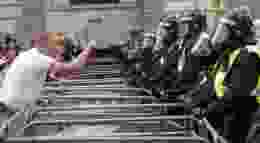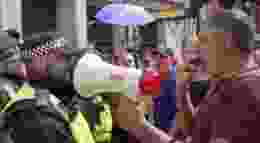
Finding the right spirit for Equality and Social Justice
Ken Crawford discusses the change in equality and social justice over time. He analyses equality of outcome and opportunity, and the implications they have on wider society.
The last century created divergent ideas about what equality should mean. Much of the East found equality, at a price, under Communism. The Western nations by contrast expanded the voter franchise. All British men were able to vote by 1918, all women by 1928. The trend towards equality of opportunity has continued with over twenty new equality related Acts coming into force since the turn of the century. The most recent, the Equality Act of 2010, sought to create equality of opportunity on nine protected characteristics, but there is debate over whether that is enough and how it should be affected, a cause that has become known as 'social justice'. It is the intention of this article to explore the right spirit in which equality and social justice should be pursued.
The moral high ground of social justice was mapped out by Gandhi in his pursuit of Indian independence. Gandhi drew on Indian spirituality, the Upanishads, that preceded and inspired the Buddha. These ancient texts teach a spiritual force that is 'absolute reality, pure awareness, unconditional joy', a state brought about by 'being in harmony with one's destiny'. In our Western reductionist way, we would say it is 'being in the Zone', though Christianity might equate it with being filled by the Holy Spirit, the paraclete that Christ left behind to guide humanity through the challenges ahead.
Martin Luther King, who travelled India and studied Gandhi's work, followed a similar ethic, describing the need for 'soul force' in his American social justice movement. As a Baptist Minister he brought the Christian spirit in his Washington speech of 1963. The full speech, available on YouTube, only runs to 17 minutes and is worth listening to in full for the unifying spirit in which it was made.
"Let us not us not seek to satisfy our thirst for freedom by drinking from the cup bitterness and hatred…I have a dream that one day… the sons of former slaves and the sons of former slave owners will be able to sit down together at the table of brotherhood".
It stands as a polar opposite to the dark spirit that moved Hitler's speeches of division and destruction at Nuremberg just a few decades earlier. John's gospel states 'In the beginning was the Word'. Both Hitler and Martin Luther King sowed seeds with the power of the word. The fruits of one we know, a world in flames, and the fruits of the other hangs in the balance.
The danger ahead for social justice is that the unifying spirit is lost in a tilt towards Communism or tribalism. The first case would see the State, or quasi-State groups like quangos, enforce an outcome. The second case would see a fracturing of society as it becomes delineated into groups focused only on protecting their own interests under the Equality Act. Equality of opportunity, a genuine meritocracy, is not favourable to the exercise of coercive power.
However, another flavour of equality, equality of outcome, is becoming fashionable. Equality of outcome is fertile soil for the exercise of power because action is needed to 'level the playing field'. There is a 'privileged' group who stand on the wrong side of the protected characteristics of the Equality Act and can now be made a legitimate target for discrimination, under the respectable guise of 'social justice'. There is no democratic mandate for equality of outcome, in the sense that the Conservative Party did not include this policy in their 2019 manifesto, but that has not proved an impediment to its gradual implementation.
Equality of outcome is a policy that may be harmless enough in the short term but risks storing up problems for a future that is likely to present us with shock events that strain our unity. We would be wise to begin thinking now about measures that will build the bonds of a common humanity.
Perhaps it now falls to the people of our time to reach out into the unknown and start to map a way forwards that avoids empty sloganeering like 'diversity is our strength', and instead find a spirit of unity that is both sincere and felt to be genuine by our diverse peoples. This is probably best accomplished by holding fast to the best of our Christian heritage, while also synthesising the spiritual treasures encountered through colonialism such as the Upanishads, the Tao Te Ching and the I Ching. The science of Psychology holds the means, but we have still to find the way.





